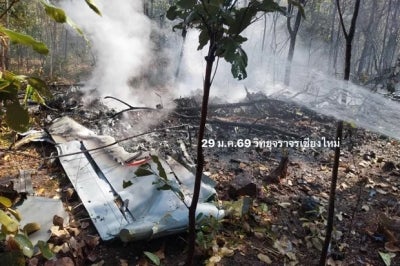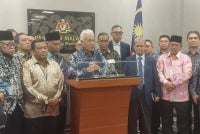Exploring the pros and cons of local govt elections in KL
SHARIFAH SHAHIRAH
SHAH ALAM - The Federal Territories (FT) KL DAP has reiterated its plea for the reinstatement of local government elections in Kuala Lumpur, spurred by the recent Cabinet reshuffle that appointed a minister for Federal Territories.
As queries arise about the significance and implications of these elections, elections analyst Dr G. Manimaran urges embracing the democratic process for the nation's advancement.
“The Local Government Act, enacted in 1976, led to the abolition of local government elections.
“From then until today, local government officials, such as municipal council presidents, city council mayors, and local councilors, have been appointed by the government, rather than through elections.
“The country needs to reconsider local government elections to fully realise the four key components of a democratic system,” he told Sinar Daily recently.
Historical context of the local government election
Manimaran said that local government elections were postponed during the 1964 Indonesia-Malaysia confrontation due to concerns about racial tensions.
Elections that used to be held for City Hall, Municipal Council, Local Council and so on are no longer held and Council members are appointed and not elected in accordance with the Local Government Act 19764 or in accordance with the Local Government Ordinances of each state.
In the early 1960s, the Election Commission (EC) carried out its functions and responsibilities as listed in the national legal framework.
However, the Penang State Legislative Assembly passed the Local Government Elections (Penang and Province Wellesley) Enactment 2012 on May 9, 2013, which was subsequently gazetted on July 5 the same year.
The Penang State Government insists that the enactment provides sufficient legislative powers to the EC to conduct local government elections in Penang.
Therefore, the EC is legally authorised and required to conduct local government elections in the state.
He added that historical records indicated the presence of two distinct local government systems for Malaya and the Straits States, which persisted until the enactment of the Local Government Elections Ordinance 1950.
The ordinance paved the way for elections in the Malacca Municipality, George Town, and Kuala Lumpur.
Furthermore, Rural Boards were appointed in Melaka and Penang, akin to the District Councils introduced nationwide from 1976/77, including Sabah and Sarawak.
With the implementation of the Local Government Elections Ordinance 1950, Municipal Council Elections took place in Kota Melaka, Melaka, in November and in George Town, Penang, in December 1951.
Subsequently, the Kuala Lumpur Municipal Council Election occurred in 1952.
The Royal Commission of Inquiry into the Authorities in Peninsular Malaysia, formed in 1965 under Athi Nahappan's leadership, advocated in its December 1968 report for the establishment of local authorities with elected representatives in every capital city of Peninsular Malaysia, with potential extension to other areas.
Unfortunately, the government of that period disregarded these recommendations. Conversely, the Local Government Act 1976 suspended all local elections, contributing to a centralised governance approach.
Pros and cons of local government elections:
Pros:
Manimaran believed that holding elections is crucial for enhancing people's participation in democracy and strengthening the country's political system.
He emphasised it will strengthen the element of check and balance, particularly in the Federal Territory where there's no state legislative assembly.
He also questions the rejection of local government election recommendations, urging a trial to embrace dynamic thinking in the new millennium.
Manimaran argued that for transparent, professional, and high-quality local government administration, elections are the ‘answer’, recommending their implementation in Kuala Lumpur, Penang, Perlis, Melaka, and Kelantan.
He challenged the hesitation rooted in fears of financial waste and potential shifts in political power, suggesting that trying elections is necessary before refusing based on these concerns.
While representatives of the legislature handle national and state-level functions, local government elections offer empowerment to citizens irrespective of religion and race.
This, in turn, contributes to bolstering the democratic spirit within local government administration.
Cons:
Aspects of selection and accountability as well as participation in the decision-making process need to be expanded.
Local government elections, Manimaran said, will provide that space and opportunity.
The representatives of the legislature, parliament and state legislature will have other functions, duties and responsibilities at the national and state levels. They have the task of being a larger legislator.
There are parties that have rejected the law prohibiting anti-party jumping for 30 years on the grounds that it is against the spirit of the Federal Constitution.
He also said there are parties that once rejected the idea of 18 votes at one point in the past. On that day both things were done, and well received.
It's worth noting that in the past, there have been instances where parties rejected certain laws or ideas initially but later embraced them, illustrating the potential for evolution in political perspectives.
After GE14, the Housing and Local Government Minister at the time (during the PH administration and then under the leadership of Tan Sri Muhyddin Yassin), Zuraida Kamaruddin stated that the anticipated cost for implementing local government elections was RM2 million per local authority (PBT) and RM308 million in total for all 154 PBTs, which was considered a minimal expense.
He indicated that the Housing and Local Government Ministry aimed to introduce motions for local government elections in the mid-2021 Dewan Rakyat session.
However, as of the beginning of the year, the status remained unknown. Nga said that it is not currently a priority for his ministry.
Download Sinar Daily application.Click Here!














